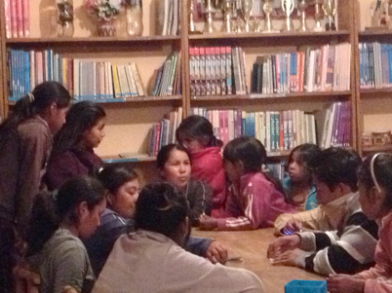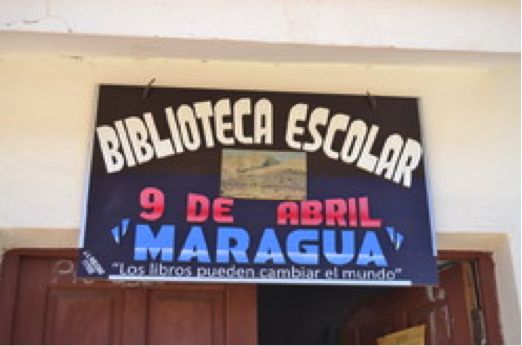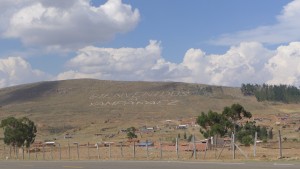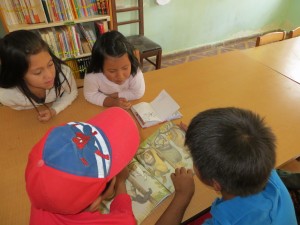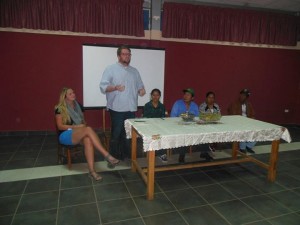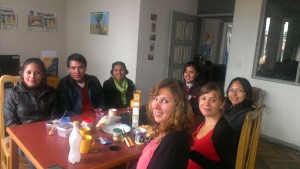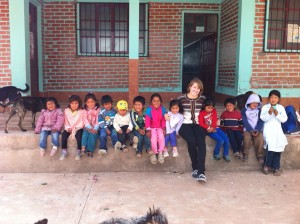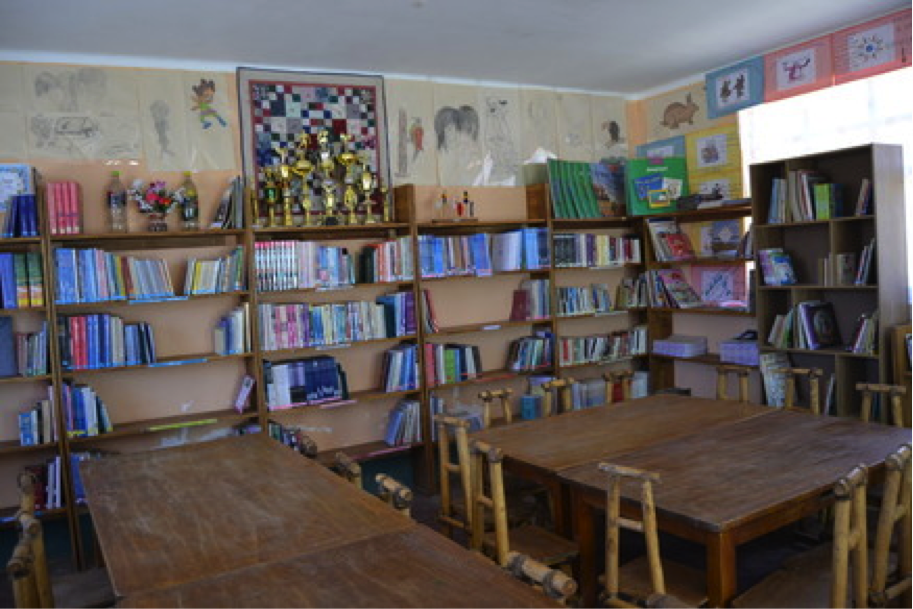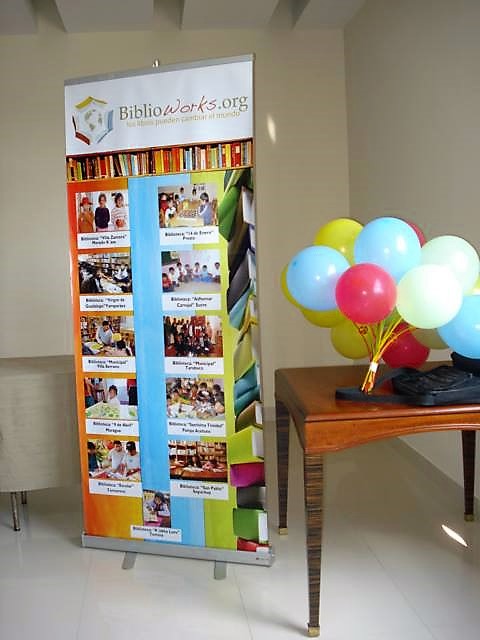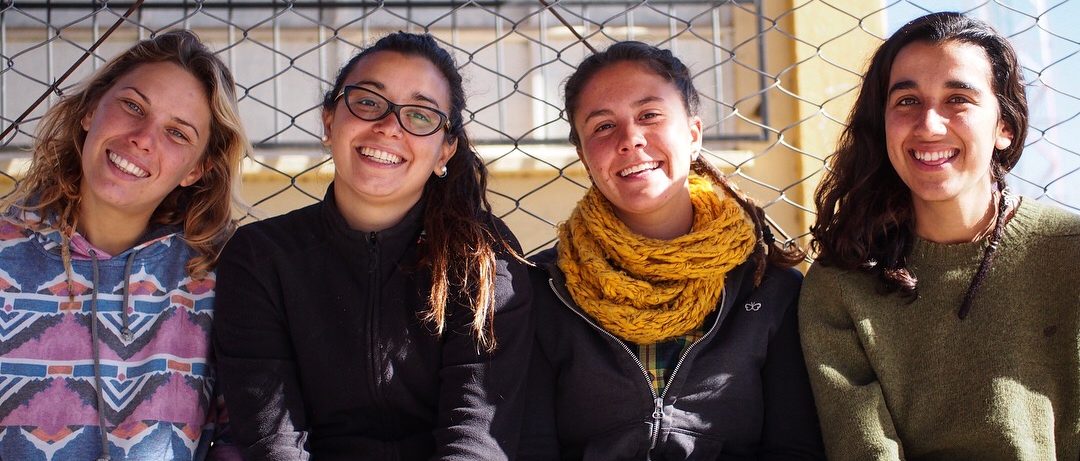
Reflections from Sopachuy: 4 Volunteers Share Their Experience
- Posted In : Stories
- 0 : comment
Julia
Sopachuy, accustomed to German volunteers, greet you with a “hallo” even if they do not know where you’re coming from; we stick out in the streets, we are the novelty, and looking at the details the truth is not lost. Everyone speaks Quechua, and in that they feel united; they speak words we don’t understand; they leave dictionaries at our request; we start to blend in; we already know some words, and in their eyes we notice that they are amazed when we speak to them.
When you feel truly interested in understanding the other, the relationship flows; we not only share with the participants of the library but we share with the people. Sopachuy has life; it’s in activity and movement.
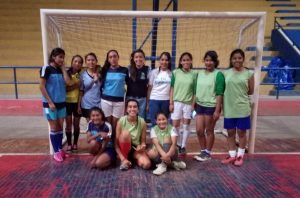 The library already has a regular attendance, but it increases with children who are curious to see who the new volunteers are.
The library already has a regular attendance, but it increases with children who are curious to see who the new volunteers are.
We read together, we draw and we paint with the little ones. We sow some doubts, some questions in the adolescents. They pass us on the street, they greet us, they embrace us; we feel part of the place. They invite us to eat, to play a game; we learn a sport, we participate in a tournament. Sopachuy has a lot to offer, and is receptive to those who want to know it. It’s a warm and pleasant place not only for its climate, but for its people who made our passage an unforgettable moment.
Antonela
Before arriving in Sucre, my friends Josefina, Julia and Florencia were waiting for me with the aim of embarking on the adventure of traveling together, but not only that, I was also given the opportunity to volunteer through Biblioworks in Sopachuy. With great anxiety, the day after arriving in Sucre, we took a bus to Sopachuy, a small town of approximately 8,000 inhabitants located in the middle of the mountains and surrounded by two rivers, which reach a point where they unite to flow together more strongly. When we arrived we were greeted by Ariel, the altar boy of the church, an incredible person who opened the doors for us to stay, and there we found a place where humility, hospitality, respect, kindness, recognition of the other, the desire to learn and share, and the desire to celebrate, abounds.
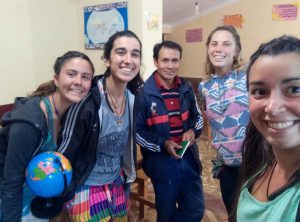
The first days we became acquainted with the town and its people, and little by little we entered into confidence with some people and met Alfredo, the man who works in the library where we were going to carry out our project. Each day was better than the other.
When we began to proceed with our tasks with the children, everything flowed very well. They were very kind to us, and we managed to build a very nice bond with them. We helped them with their homework, we did recreational and artistic activities, we read stories and then gave them slogans to work on what we read, we played a lot, and above all things and the most special is that the learning was reciprocal. I learned and understood many things with them and with the people of the town, with their stories, their culture, their regional language, Quechua, and their way of living life. Ariel also gave us the space to do a workshop with the children of the boarding school; we chose to carry out cooperative and reflective activities, of which I feel very satisfied, since they were predisposed with enthusiasm and had the space to reflect and comment from their personal experience. We also had the opportunity to play with the children of the children’s center and help the teachers with activities and games more related to physical education.
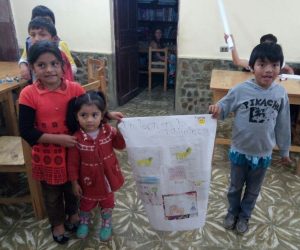
In our free time we were able to meet the rivers, and there enjoy the sun, the water, and the beautiful and full landscape of life that Sopachuy has. The people also invited us to eat, to hang out and drink some mates and share stories and anecdotes, to cultural celebrations, and to just spend time together. It was incredible, this experience, and I am very grateful to Biblioworks and Sopachuy since they opened the doors to us to live something very special, full of learning and amazing moments. It exceeded all expectations. From those 10 days in Sopachuy, I take with me all the love from the people we met, the energy that is in that place–which is very strong and full of life–a lot of learning, the peace of having given my all and the best version of myself, and I also take very special moments and incredible landscapes. Simply, thank you.
Florencia
Many times they ask us where we came from. We always respond with the previous city we were at before. When they ask us where we were born, we say in Buenos Aires, but there is a question that we still do not know how to answer: where do you live?! We do not have a house … we do not have a house because in Buenos Aires there is only that of our family. We do not have a house because it is rolling, although it does not have wheels either. It could be said that it is a walking house, because it has feet. One of the girls answered [that question] once; “This is our house”, and pointed to her backpack.
It’s true. In there we carry all our coats, books, sleeping bags, as well as important things: loves, fears, worries, memories, friends, joys, stories, good energies sent from afar, and a bit of luck at times. House is something so big and so heavy that sometimes I wonder what I can let go, there are things that are impossible and many others that are difficult. However, each step taken, each staircase climbed and each street traveled are part of the path we chose.
We arrived in Sucre in search of heat. We came from a trip of tired backpacks, as an Argentine singer says, and we needed a warm place that felt good. This is how we decided to go to Boblioworks, an organization that a friend recommended, a very accurate decision because we found much of what we needed: open doors, receptive hugs, and a beautiful people who trusted us from the first moment. There we agreed that our destination would be Sopachuy, a small town located in a warm valley 197km from Sucre.
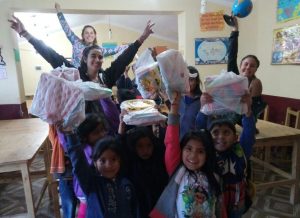 Sopachuy welcomed us as we had never imagined. Its people gave us everything they had, from a plate of food to the care of their most precious treasures: their children. We being four teachers, we were able to contribute a bit from our role. We helped in the nursery, we did a teamwork workshop with the girls and boys of the boarding school, and worked all the tasks in the library. There we help the children with their homework, read stories, drew, played, and learned a lot.
Sopachuy welcomed us as we had never imagined. Its people gave us everything they had, from a plate of food to the care of their most precious treasures: their children. We being four teachers, we were able to contribute a bit from our role. We helped in the nursery, we did a teamwork workshop with the girls and boys of the boarding school, and worked all the tasks in the library. There we help the children with their homework, read stories, drew, played, and learned a lot.
Equally, I think Sopachuy and its people gave us back a lot more. We were invited to play basketball and even wally, a sport that does not exist in our country. We learned to cook cakes from [our friend] Jeny’s hand and to be burned with our own hands. We studied Quechua and they taught us the Ayñi mink’a. We learned that when walking through town, a smile and a hug would be to the cry of ¡profe!, and it is worth more than any school work. We learned to enjoy the hills, the rivers and the Pacha. We learned to be away from home, but to feel close.
Thank you Sopachuy, thank you Biblioworks, and thank you Bolivia, for your beautiful people.
Josefina
We said goodbye to the Biblioworks headquarters in Sucre and Juli, Anto, Flor and I went to Sopachuy. Although we were advised by the girls in the office, many questions haunted us: if there would be some kind of organization in the village library, if it would be difficult to generate links with the children and also with the inhabitants of Sopachuy, what would the physical space be like where we would have to intervene, and many other questions that among so many lived moments now I forget.
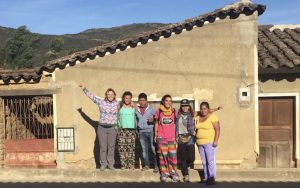 We arrived in Sopachuy and were greeted by Ariel, altar boy of the parish who was our guide and friend during our stay there. He helped us as much as he could and integrated us well with the youth of the town.
We arrived in Sopachuy and were greeted by Ariel, altar boy of the parish who was our guide and friend during our stay there. He helped us as much as he could and integrated us well with the youth of the town.
On our first night we were invited to an event that was held in the central square, we danced regional rhythms and experienced some meals. It was a very nice night with bonfires on the street.
On Monday morning a woman named Jenny, collaborator of the Parish, came to ask us please to go to the garden [the children’s center] to play with the children and guide the girls who are in charge since they are not educators and therefore they do not have many educational and pedagogical tools.
Our commitment was to the library but we decided to collaborate with the garden by putting together a curricular design (with our knowledge of the curriculum design of Phys. Ed. mainly) with subject-matter and didactic strategies that included many activities and variants so that the people in charge of the center could use it during the year. It was a good day to think and plan this time for the little ones.
On Wednesday evening / night, at the request of Ariel, we planned and conducted a workshop for the boys and girls of the boarding school. We decided to address the theme of “Teamwork”. It had an interesting dynamic, because everyone had to participate in 4 groups, and boys from 12 to 18 years old united to achieve the goal of each game. There were about 40 children who participated and when we said goodbye we gave them didactic material donated by the Library.
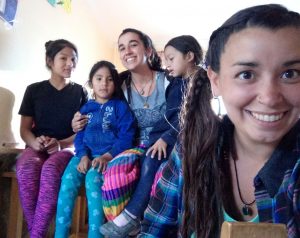 Those were the activities we did as volunteers.
Those were the activities we did as volunteers.
From our experience in Sopachuy as volunteers, I take each hug from the children with whom in a few days we generated a nice bond, the adults who have invited us to meet their home and their family, and have given themselves very generously, and the spaces where we could work, exchange and know in depth a geographically beautiful valley with very receptive, kind and ACTIVE people!!
Thank you BiblioWorks for this opportunity.

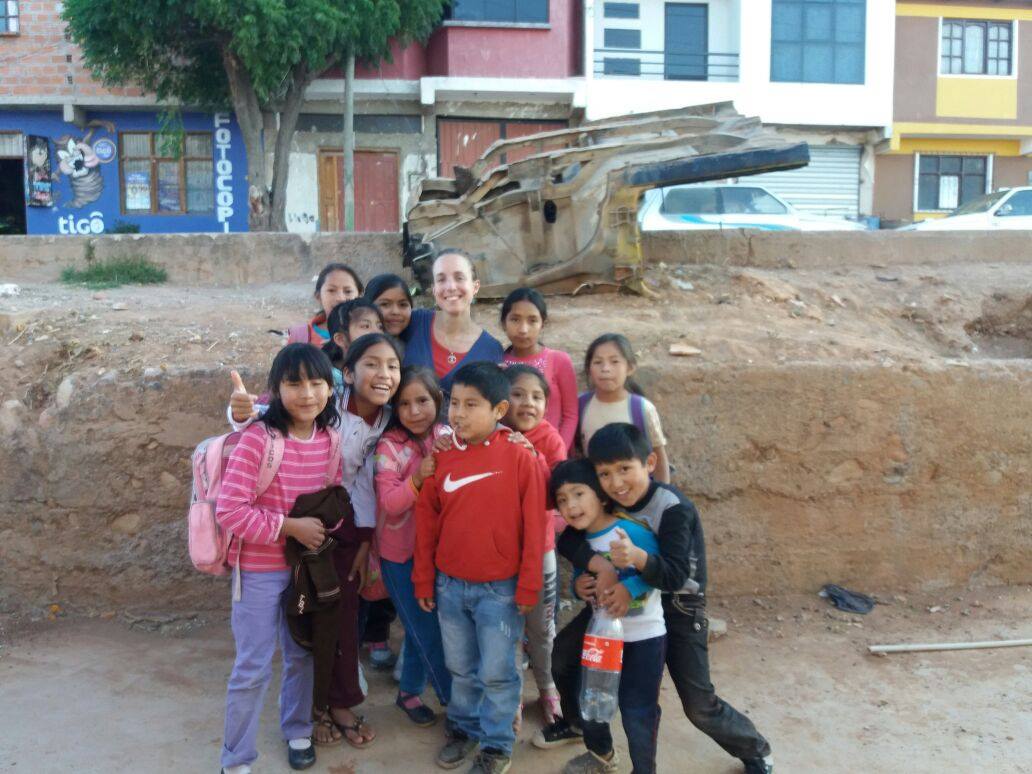
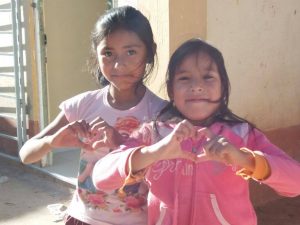
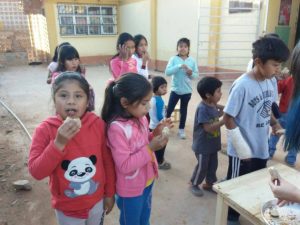
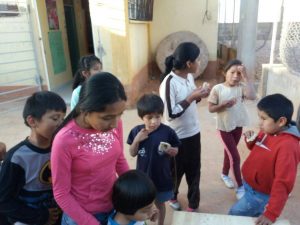

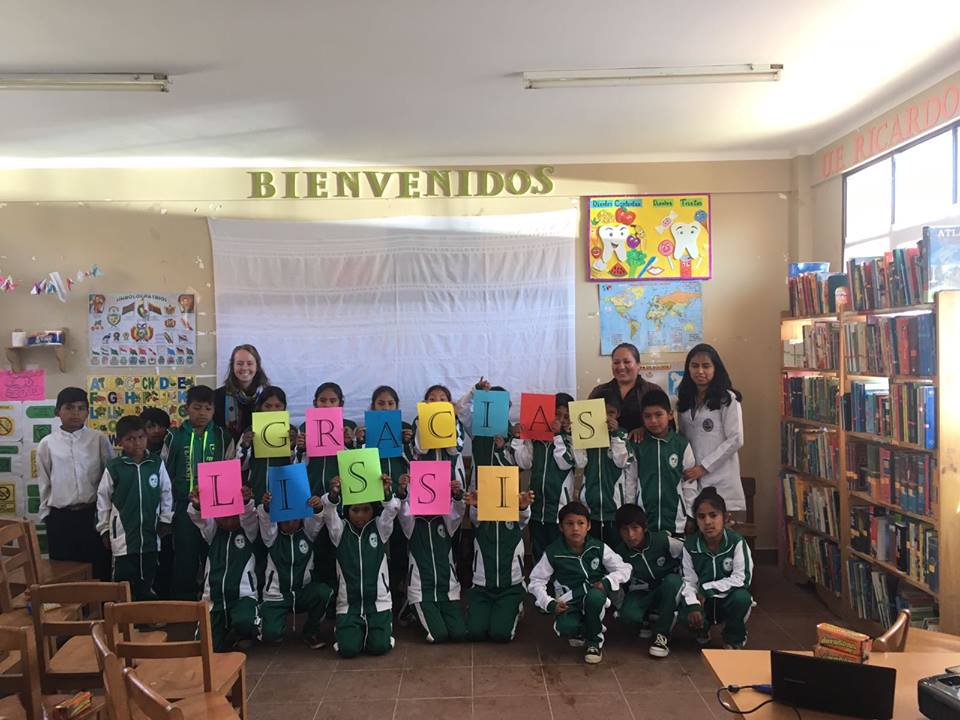
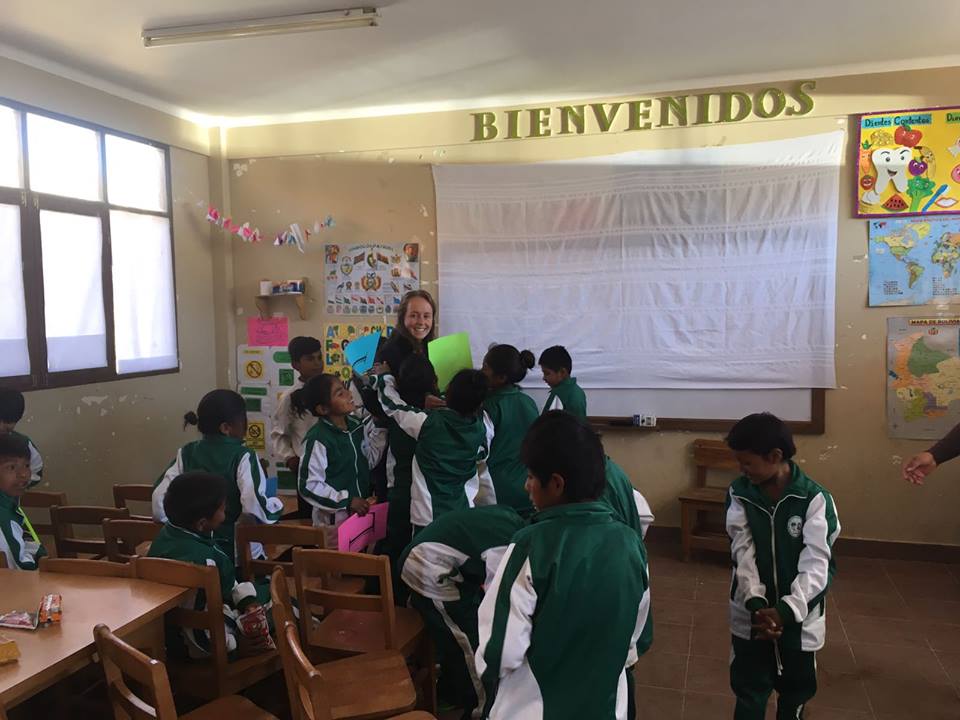
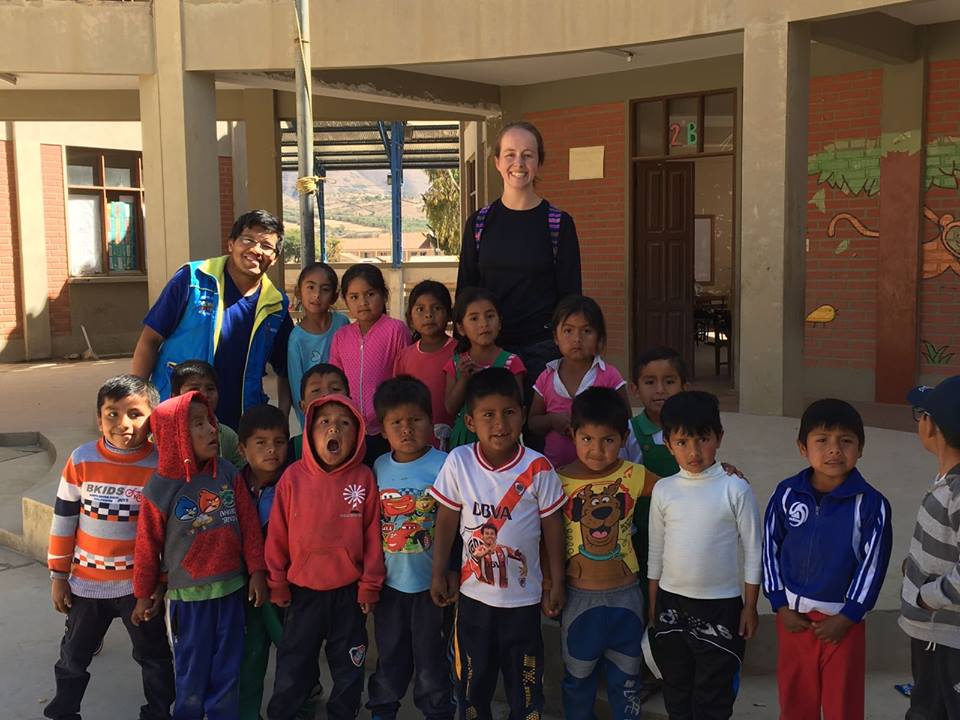
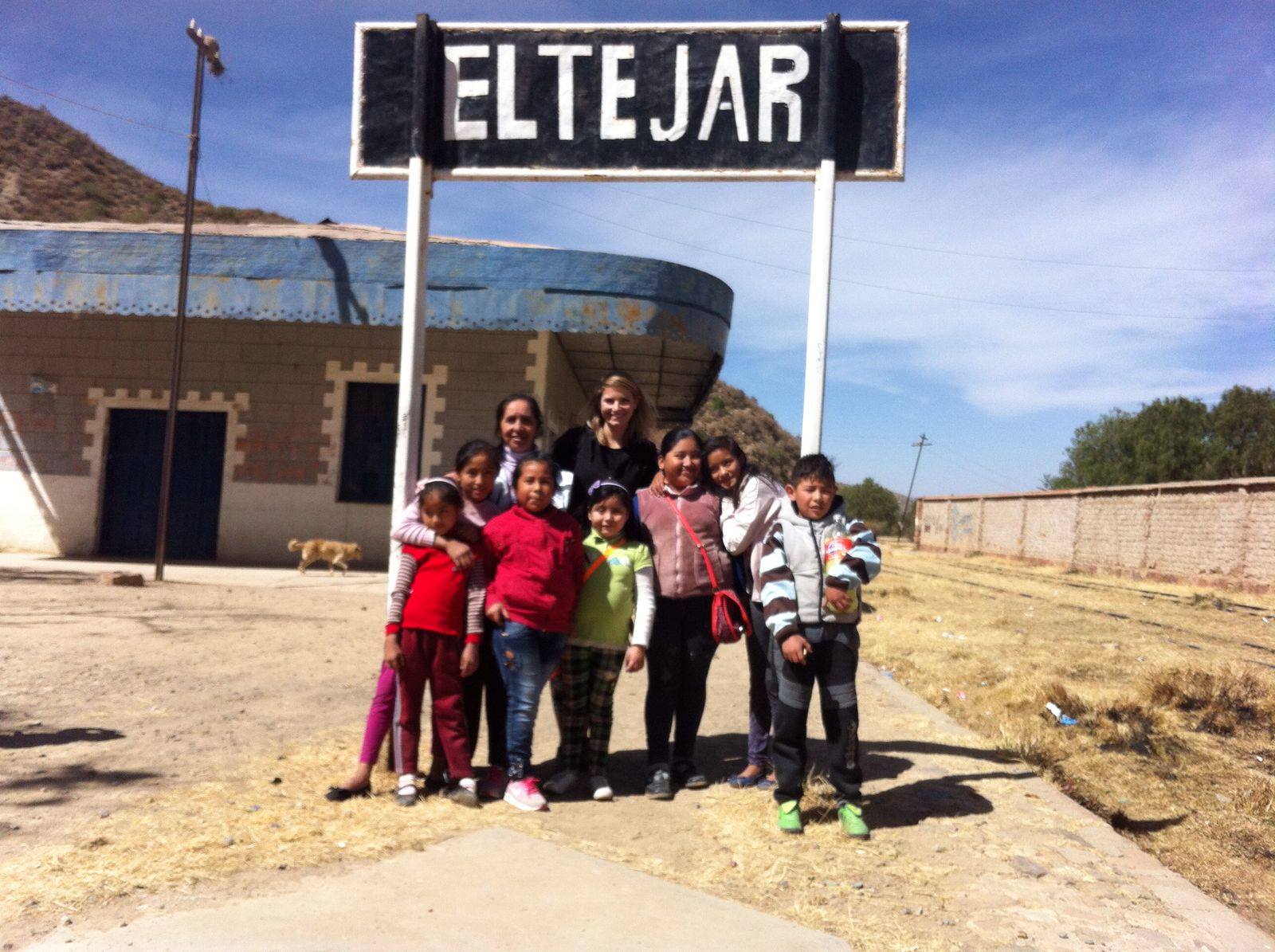
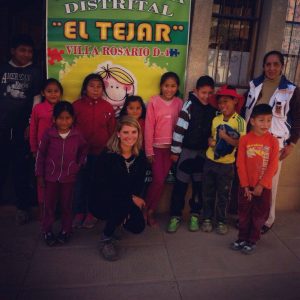
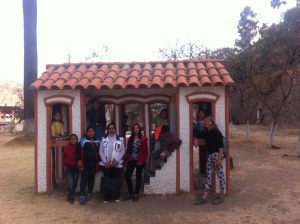
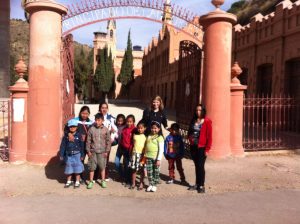
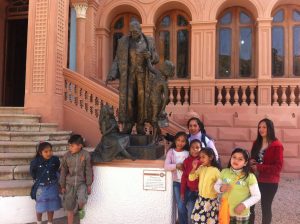
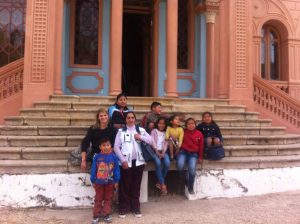
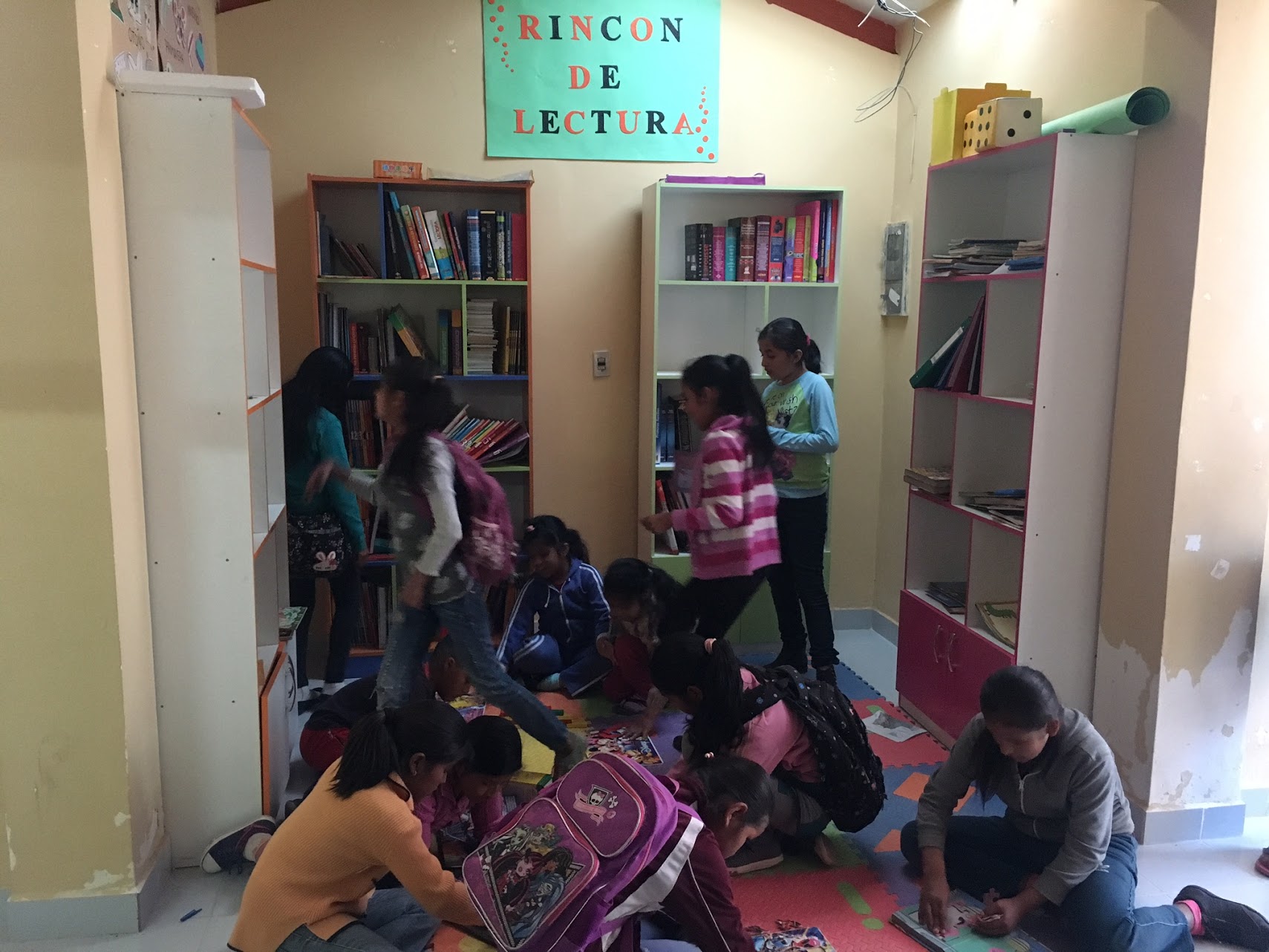
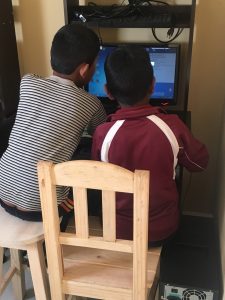
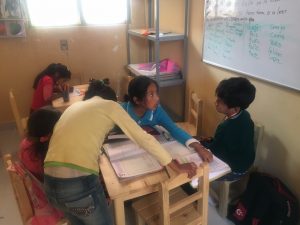
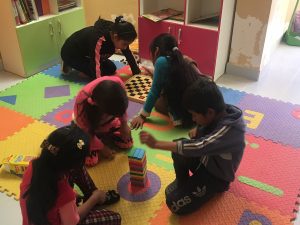
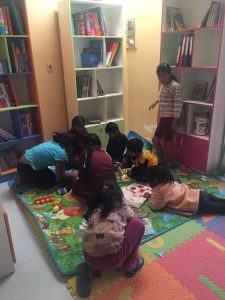 Generally the kids can entertain themselves and find things to do and will get on with homework or reading so volunteers shouldn’t worry about planning lessons in advance and don’t need to have any teaching experience – just an imagination and a sense of humour (and some Spanish, although you’ll definitely learn the important stuff quickly)!
Generally the kids can entertain themselves and find things to do and will get on with homework or reading so volunteers shouldn’t worry about planning lessons in advance and don’t need to have any teaching experience – just an imagination and a sense of humour (and some Spanish, although you’ll definitely learn the important stuff quickly)!